June 1, 2025 | 04:24 GMT +7
June 1, 2025 | 04:24 GMT +7
Hotline: 0913.378.918
June 1, 2025 | 04:24 GMT +7
Hotline: 0913.378.918
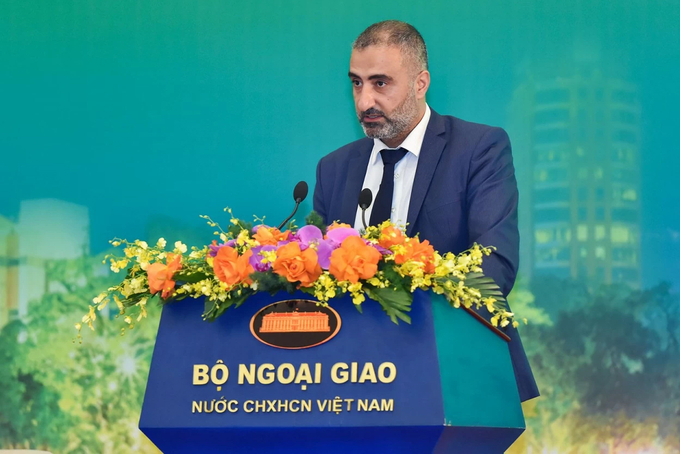
Mr. Miran Ismael, Director of the European Certification Center for Halal - ECC Halal. Photo: Tung Dinh.
At present, the Halal market is expanding significantly on a global scale as a result of the growing demand for ethically appropriate and high-quality products, which is not limited to the Muslim community but also extends to consumers of other faiths.
According to Mr. Miran Ismael, Director of the European Certification Center for Halal - ECC Halal, the continent is home to approximately 25 million Muslims, with particularly significant Muslim communities in countries such as the United Kingdom, France, Germany, and the Netherlands. Plans for the future indicate that this figure will continue to increase.
According to a recent report by Pew Research, the Muslim population is expected to constitute 14% of the total population of Europe by 2050. There is an enormous chance for Halal products to penetrate the European market as a result of the growing Muslim population.
The Halal market in Europe is presently valued at more than 70 billion euros and is anticipated to experience substantial growth in the years ahead. In sectors such as cosmetics, pharmaceuticals, food and beverages, and fashion, popular products typically meet the requirements of consumers who are interested in Halal. Halal food and beverages comprised more than 35 billion euros of the total market value in Europe in 2021.
This confirms the substantial demand for Halal-certified products of high quality in this market. Nevertheless, the availability of Halal products in Europe has not yet been sufficient to satisfy the demands of consumers.
Mr. Miran Ismael underscored that Vietnamese enterprises may capitalize on this opportunity to penetrate the European market.
He asserts that Vietnam has a robust production capacity and is gaining expertise in food processing. Consequently, Vietnam is in an advantageous position to satisfy the increasing demand for Halal products in Europe.
The director of ECC Halal has stated that in order for Vietnamese businesses to successfully export Halal products to Europe, they must implement a variety of strategies, beginning with diversifying their consumer base.
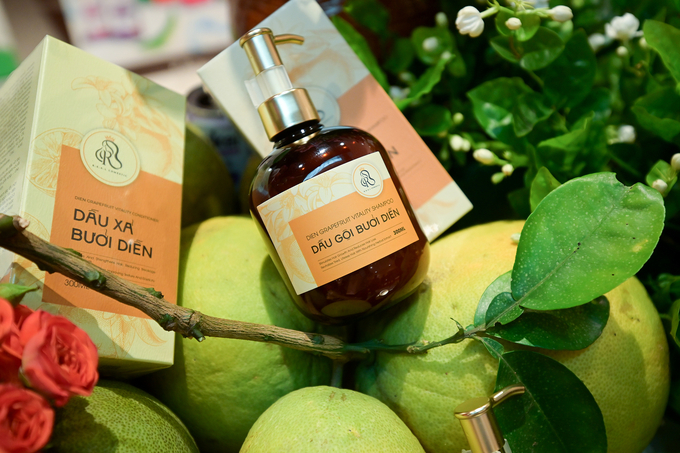
Natural-origin pharmaceuticals and cosmetics are popular among Halal consumers. Photo: Tung Dinh.
“The Muslim consumer group in Europe is highly diverse, particularly among the second and third generations. These are individuals who have become deeply rooted in European society and have acquired sophisticated consumption habits. Therefore, they seek products that are in accordance with their lifestyle and adhere to Halal standards", stated Mr. Miran Ismael.
Currently, the food and beverage sector in numerous European countries is characterized by a preference for imported Halal products. Vietnamese businesses have the potential to supply premium Halal ingredients, ready-made dishes, seafood, and a variety of other products in this prospective area.
Furthermore, both Muslim and non-Muslim European consumers are increasingly emphasizing the importance of ethically-produced and sustainable products.
"This is also an area in which Vietnamese businesses can capitalize on their strengths, particularly if Vietnam prioritizes environmentally friendly packaging and sustainable farming," underscored the ECC Halal leader.
In order to achieve success in the European market with Halal products, Vietnamese businesses should also capitalize on the advantages of the e-commerce ecosystem to directly engage consumers.
"The younger generation of Muslims in Europe is particularly tech-savvy and frequently shops for Halal products on online platforms," the ECC Halal Director explained. He advised businesses to establish strong brands and offer a high-quality online purchasing experience.
Vietnam has the opportunity to concentrate on three primary product categories. Food and beverages are the top priority, with products that adhere to both European and Halal standards. Pharmaceuticals and cosmetics comprise the second category, which has a market value in the billions of euros. Lastly, there is a demand for Halal-certified ingredients, including gelatin, enzymes, emulsifiers, and other products.
It is imperative to acknowledge the obstacles that Vietnamese businesses encounter when exporting to the European market, in addition to their potential.
The director Miran Ismael, observed that the initial obstacle to examine is trade and services. Exporting to Europe necessitates a comprehensive understanding of trade policies, prospective tariffs, and the logistics sector.
"However, the European Union facilitates trade through agreements like the EU-Vietnam Free Trade Agreement (EVFTA), which helps reduce tariffs and simplifies market access to Europe," said the representative.
Consumer awareness and brand identity represent the next obstacle. Therefore, to achieve success in the European market, Vietnamese businesses must allocate resources to expanding their brand recognition and establishing themselves as dependable suppliers of Halal products.
The product packaging and branding should guarantee safety, sustainability, and high quality, which will appeal to the broader European market with its stringent standards and to Muslim consumers.
Vietnamese businesses have a valuable opportunity to meet consumer demand in the European Halal market, which is prepared for more robust development. The Director of ECC Halal underscored that Vietnamese exporters can capitalize on this promising and expansive market by emphasizing high-quality products that adhere to Halal standards and fully capitalizing on Europe's increasing demand for reliable sources.
"Vietnam is in a favorable position to establish itself as a premier supplier of Halal products to Europe." The head of ECC Halal emphasized that a prosperous future can be achieved by fostering coordination among the government, certification agencies, and the business community, resulting in the recognition of Halal products produced in Vietnam throughout Europe.
Translated by Linh Linh
/2025/05/30/5010-5-173638_943.jpg)
(VAN) On May 29, at the GO! My Tho Trading Center, the Tien Giang Department of Industry and Trade, in collaboration with Central Retail Corporation, held the opening ceremony of the 3rd Fruit Festival 2025.
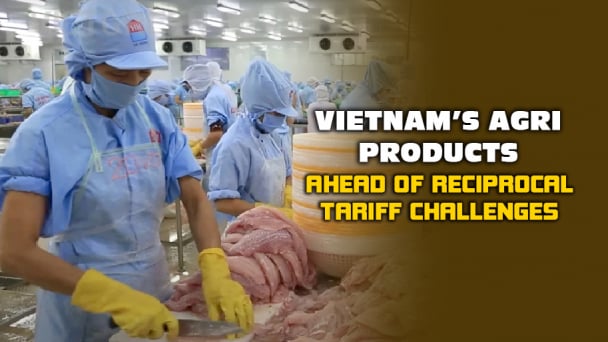
(VAN) Reciprocal tariffs are exerting pressure on U.S. exports, prompting Vietnamese firms to shift their focus to Muslim markets, Thailand, and Brazil.
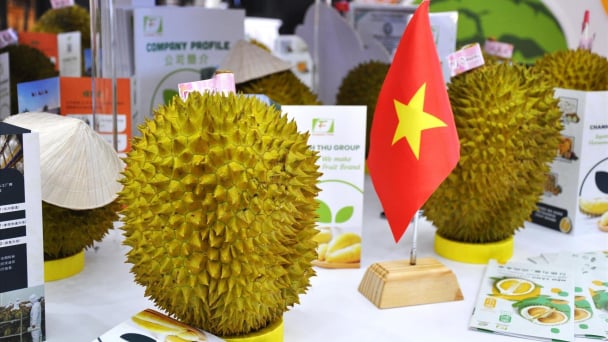
(VAN) A free booth for two years at Xinfadi, Beijing's largest wholesale market, will be allocated to Vietnam's agricultural products.
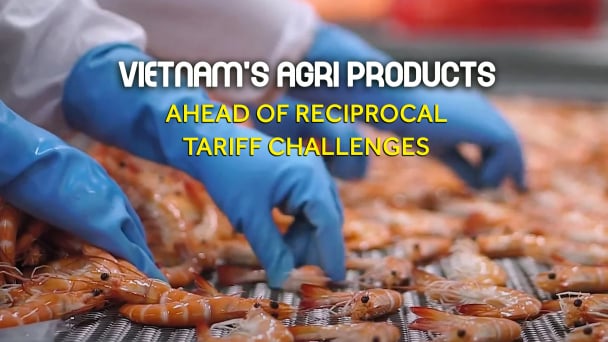
(VAN) Vietnamese shrimp exporters are actively looking for alternative markets and accelerating shipments to the United States in response to the pressure of impending reciprocal tariffs. This is occurring during a temporary tariff suspension.

(VAN) The import-export turnover between Vietnam and Singapore rose amid a trade rebound, with machinery, electrical equipment, and fuels making up the majority of the transaction value.

(VAN) Director General of the General Administration of Customs of China, Ms. Sun Mai Jun, has pledged to implement measures that will ease the import process for Vietnamese agricultural products.

(VAN) Although Vietnam is still increasing its coffee exports, the industry is currently in the process of determining market strategies in response to the U.S. imposition of reciprocal tariffs.